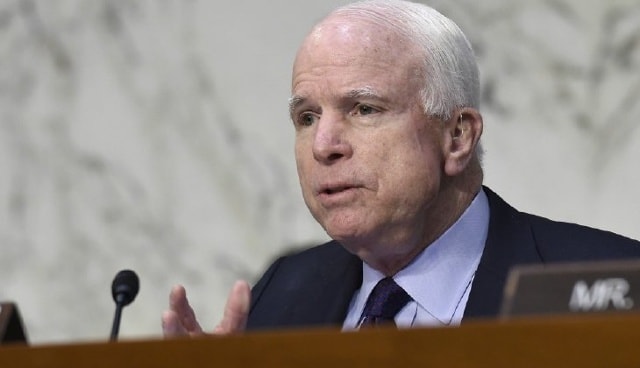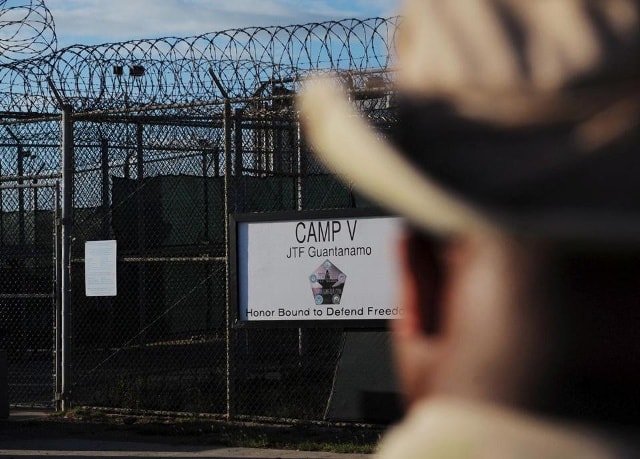America is in turmoil again over the defense spending bill
(Baonghean) - On June 14, the US Senate passed the National Defense Authorization Act (NDAA) with an overwhelming majority. Thus, this bill has passed three important "barriers": the Senate Armed Services Committee, the House of Representatives, and the Senate. However, it is likely that the US President will veto this bill again like he did last year, showing that the war between the Obama administration and the Republican-controlled Congress is still a long story with no end in sight.
Supporters "gloat"
Despite President Barack Obama's opposition, the National Defense Authorization Act passed the US Senate with an overwhelming vote: 85 votes in favor and 13 votes against. Of which, only 6 Republican and 7 Democratic senators voted against the bill, showing a rare bipartisan consensus in the US Senate. Previously, this bill was also passed with an overwhelming vote in the Senate Armed Services Committee and in the House of Representatives.
 |
| Senate Armed Services Committee Chairman John McCain was the happiest person when the Bill was passed. Photo: AP. |
The new National Defense Authorization Act is the document authorizing the disbursement of the US defense budget for the 2017 fiscal year, which begins on October 1. With a budget package of 602 billion USD, this bill is considered to clearly reflect the Republican Party's tough stance on national security and defense.
The bill prevents the Department of Defense from reducing the number of active-duty troops by providing provisions that would keep the Army below 480,000, increase the Air Force and Marine Corps by 7,000, and allow for a 2.1 percent pay increase for soldiers. The bill also requires additional budgetary allocations to strengthen the military, purchase more warships, fighter jets, etc. The bill also includes provisions to amend the process of managing weapons procurement, according to which the main management responsibility will be transferred from an office under the Pentagon to two Deputy Secretaries of Defense.
Senate Republicans were delighted with the victory, saying the bill would help the US make financial decisions and give US soldiers the tools to protect the country from potential threats at home and abroad.
The arguments of the bill's supporters are further strengthened in the context of the US still not recovering from the bloody shooting that left at least 50 people dead in Orlando.
According to Senator Mitch McConnell, although the killer's motive is still being investigated, the Barack Obama administration's policy to fight IS has proven ineffective, and passing the defense bill is "one of the measures for the United States to fight against IS".
Meanwhile, Senator Dick Durbin emphasized, "The bill is a victory for national security and the people who pay taxes to the State. We must destroy IS before they can reach the octopus in America, and to do that, we need a stronger military force."
President Obama determined to prevent
If “national security” is the main reason for supporters of the National Defense Authorization Act, the list of reasons to oppose the bill of US President Barack Obama is even longer. Among them, the most notable is the bill's transfer of $18 billion in special war funds - called Overseas Contingency Operations (OCO) - to short-term military spending programs such as troop increases, aircraft and warship purchases. Mr. Obama believes this is unfair and endangers those who are on duty to protect the United States, discourages soldiers and their families, and "makes it difficult" for America's allies.
 |
| Closing Guantanamo Prison - the goal that made President Obama determined to block the National Defense Authorization Bill. Photo: Reuters |
Another reason why the bill faced strong opposition from Mr. Obama was the provisions that prevented the closure of the Guantanamo prison in Cuba. Everyone understands how hard Mr. Barack Obama has been trying to achieve this goal, making his personal mark in the final period of his presidential term, in addition to the "milestones" he has achieved such as normalizing relations with Cuba, reaching a nuclear agreement between Iran and the P5+1 group.
According to the procedure, the Senate version of the National Defense Authorization Bill must match the content of the version passed by the House on May 18, before the two chambers can vote together. After that, the bill will be sent to the White House for President Obama to sign into law or veto before September 30 - the end of the 2016 fiscal year.
However, many experts believe that President Obama will almost certainly not sign this bill, because he has never shown any sign of concession to the Republican Party's request to separate budget cuts from funding for the Department of Defense.
Last year, President Obama made a similar decision. At that time, both the Senate and the House of Representatives will have to vote again to override the President's veto. And once again, the public will witness a new battle between the Obama administration and the Republican-controlled Congress - a scenario that has been "replayed" many times when the Democrats lost control of Congress since 2014.
Thuy Ngoc
| RELATED NEWS |
|---|
